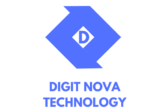In the fast-changing world of digital marketing, personalization has always been the key to customer engagement. But in 2025, a new wave of innovation is transforming personalization into something far more dynamic, intelligent, and effective — thanks to artificial intelligence (AI).
From chatbots to content recommendations, AI-powered personalization is redefining how businesses connect with consumers, enhance user experience, and boost conversions across every platform.
The Rise of AI in Digital Marketing
Artificial intelligence is no longer just a futuristic concept; it’s the driving force behind most modern digital marketing strategies. Today’s consumers expect more than generic emails or static landing pages. They want brands to know their preferences, anticipate their needs, and deliver content that speaks directly to them.
AI helps marketers:
-
Analyze user data in real time
-
Predict customer behavior
-
Deliver hyper-personalized experiences across multiple touchpoints
This shift is not only improving ROI but also changing the relationship between brands and their audiences.
Real-Time User Data Analysis
Traditional marketing relied on past behavior or segmented demographics to craft messages. But in 2025, AI uses real-time data — like browsing history, location, and behavioral signals — to deliver content instantly tailored to the user.
For example, AI algorithms can:
-
Detect when a user is most active online
-
Track their purchase journey
-
Predict what product or service they’re most likely to need next
With this level of insight, digital marketing becomes a conversation rather than a broadcast.
Dynamic Content Personalization
One of the most powerful applications of AI is dynamic content — website elements, emails, or ads that change based on who’s viewing them. This could mean:
-
Showing product recommendations that match the user’s past searches
-
Displaying personalized offers based on cart abandonment behavior
-
Changing website copy in real-time to suit user interests
These personalized touches drastically improve engagement rates and drive better outcomes for businesses.
Voice Search and Conversational AI
In 2025, people are using voice-enabled devices and AI chatbots more than ever. As a result, AI is helping marketers adapt to voice search trends by optimizing content to answer natural language queries.
Tools like ChatGPT, Alexa, and Google’s Gemini are now key channels where users seek product recommendations and service solutions. This means businesses need to tailor their content not just for search engines, but for AI-powered interfaces as well, also known as Answer Engine Optimization (AEO) or Generative Engine Optimization (GEO).
Email Marketing Gets Smarter
AI is revolutionizing email marketing too. Instead of bulk email blasts, brands now use AI to:
-
Personalize subject lines
-
Choose the best sending times
-
Curate content for individual recipients
The result? Higher open rates, better click-through rates, and more conversions.
Smarter Ad Targeting
AI improves digital marketing ads by learning from user behavior and adjusting campaigns in real time. With predictive analytics, marketers can:
-
Identify which users are most likely to convert
-
Serve ads based on current context (location, time, device)
-
Automatically allocate budget to top-performing ads
This level of automation saves time and significantly improves ROI.
Ethics and AI in Marketing
As AI becomes more advanced, privacy and ethical considerations also take center stage. In 2025, businesses are required to follow strict guidelines to ensure transparency and consent in data usage.
Respecting user privacy while delivering personalized experiences is the balance that every brand must master.
The Future of AI in Digital Marketing
Looking ahead, AI will not just support marketers — it will co-create campaigns, write compelling content, and make decisions that drive growth. Marketers who embrace AI will have the edge in terms of speed, precision, and personalization.
However, the human element still matters. Emotional intelligence, storytelling, and brand authenticity remain irreplaceable. The sweet spot lies in blending AI’s power with human creativity.
✅ Conclusion
AI-powered personalization is no longer optional, it’s essential for staying relevant in 2025’s digital marketing landscape. Whether you’re a startup or an established brand, integrating AI tools to better understand and serve your customers is the smartest move forward.
Digit Nova Technology empowers businesses to stay ahead with AI-driven strategies that deliver real results. If you’re ready to revolutionize your marketing approach, it’s time to embrace the future, powered by personalization and driven by AI.
FAQs
1. How does AI help in digital marketing personalization?
AI analyzes real-time user behavior and data to deliver customized content, product recommendations, and offers tailored to individual preferences — boosting engagement and conversions.
2. What tools are used for AI personalization in marketing?
Popular tools include ChatGPT for conversational AI, Adobe Sensei for content intelligence, HubSpot’s AI features, and Google’s Gemini for predictive insights and voice-based optimization.
3. Is AI-based personalization safe for user data?
Yes — when implemented with proper ethical standards and privacy policies. Brands must follow GDPR, CCPA, and other regulations to ensure secure, transparent data handling.
